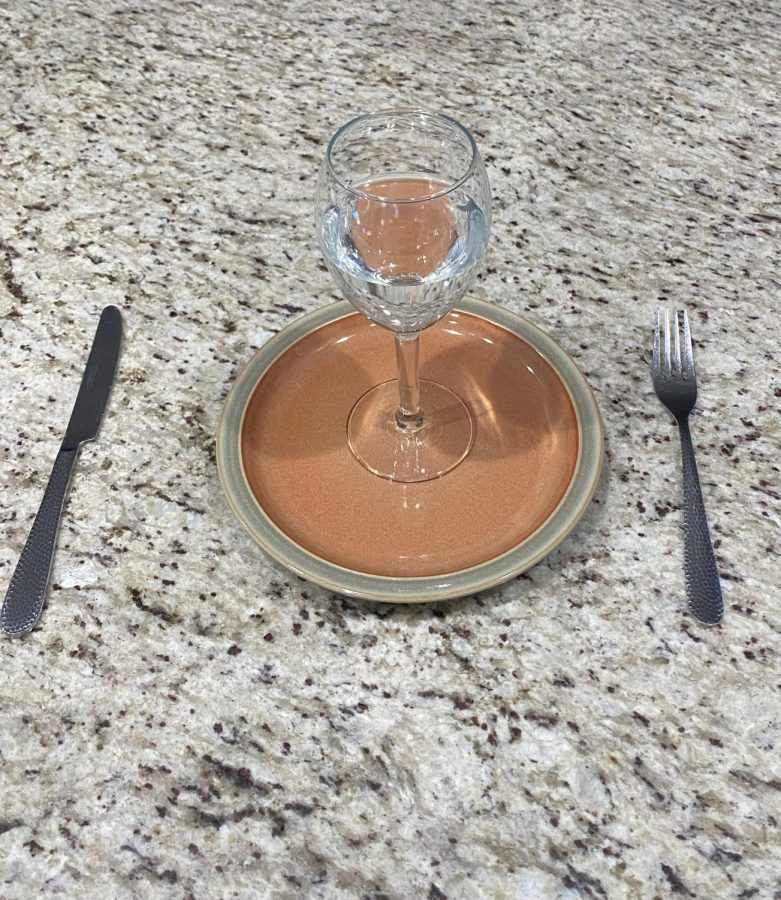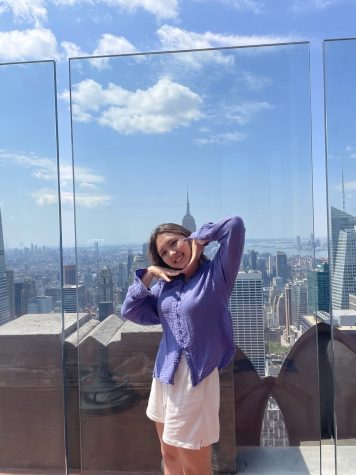Food: a basic component of life, necessary for providing humans with the essential nutrients to maintain a healthy, functioning body. Even beyond its functional utility, food is a social activity—people eat with others to experience happiness and satisfaction with their lives.
However, celebrities are often subject to stringent diets and exercise routines to keep a good physique, with many taking these to extreme levels in order to achieve the current social beauty standard of exceptional thinness.
In a recent interview with Dr. Will Cole, host of “The Art of Being Well” podcast, actress and businesswoman Gwyneth Paltrow shared her wellness routine. Despite titling her routine as one of “wellness,” the actress revealed eating habits that borderline a severe eating disorder.
In the podcast, Paltrow walked through her diet and exercise habits. In the morning, she drinks coffee that won’t spike her blood sugar and, as she practices intermittent fasting, doesn’t eat breakfast. For lunch, she drinks bone broth, followed by an hour of movement through walking or pilates. For dinner, Paltrow sticks to a paleo diet, consisting mostly of vegetables, to support her “detox.”
As a dedicated rower, senior Sophia Ramaraju focuses on her health and the foods she consumes to perform her best. However, after watching Paltrow’s interview, Ramaraju was distraught by the unrealistic portrayal of how much food the human body needs.
“I eat a lot of foods that are good for me, and I need to be constantly eating to keep up with my fitness goals and compensate for how much I exercise. Gwenyth Paltrow’s routine is really unhealthy because of how much she’s working out while not properly fueling her body,” Ramaraju shared.
Apart from her little-to-no food intake, most concerning was Paltrow’s use of an IV during the interview to get her dose of vitamins.
This pattern of extreme dieting is not limited to American celebrities, but rather reflects the harmful worldwide trend. Song Ji Ah, a cast member for the South Korean reality TV show “Single’s Inferno,” has a YouTube channel dedicated to showing her daily routine, makeup and skincare tutorials, clothing hauls, meal plans and travels.
In a video titled “5-day meal: Let’s eat together during Chuseok!”, Song revealed her startling diet that consisted of very little food—there are days Song only consumes one large meal per day.
PV senior Elyanna Toulou followed Song on Instagram after watching “Single’s Inferno” and keeps up with her YouTube videos as well. Noticing how thin she is, Toulou believes that Song’s disposition is a result of intense beauty standards in South Korea.
“As a model, her whole thing is about being pretty. If she has an eating disorder, she probably feels like she has to restrict her food to fit into a certain mold,” Toulou said. “In South Korean media, I’ve never seen a plus-sized celebrity portrayed as attractive and for her to look the way she does is not entirely uncommon.”
A common trend among many skinny influencers and celebrities is not eating full meals but falsely promoting that they are. This leads audiences to have a negative perception of themselves for not having a similar body type while eating a similar diet. Though some believe this content can be beneficial for audiences to realize what it actually takes to have a skinnier frame, it can also influence and promote disordered eating behaviors.
A notorious figure in popular culture media for promoting these behaviors is Yolanda Hadid who has gone under fire for her video “Everything Yolanda Hadid Eats in a Day” for Harper’s BAZAAR, a women’s fashion magazine.
Just like the previous women, Hadid presents a diet that most people would not survive on based on lack of volume and macros. The criticism for Hadid doesn’t stem from this video alone, but also her history of forcing her children, models Bella and Gigi Hadid, to eat less.
“It’s depressing that attractiveness and aesthetics are more important than being healthy,” Toulou continued. “So many people are obsessed with looks because of toxic beauty standards and both men and women are damaging their bodies to be skinny or to look according to what society deems as beautiful.”
Celebrities will perpetually face the pressures of maintaining social expectations of beauty. Dieting and intense exercising are so ingrained in celebrity culture and among influencers that it is hard to predict if and when the negative trends will finally meet their end. Until that happens it is important to remember that, as people who consume all this media, it’s best to do what you feel is right for your body.
In the wise words of actress Emma Thompson, “Don’t waste your time, don’t waste your life’s purpose worrying about your body. This is your vessel, it’s your house, it’s where you live, there’s no point in judging it.”










